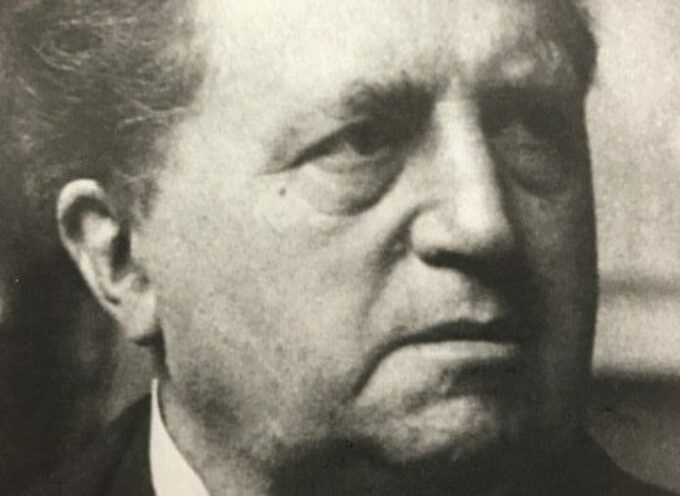This week, my family and I leave for a one-week vacation. In addition to relaxing at the beach with my family (if “relaxing” is what one does with children ages 6, 5, and 3) and keeping up with the Republican National Convention, I intend to do some reading. For starters, I will finish reading two fine books, Os Guinness’ Impossible People and Anthony Bradley’s Black and Tired.
While my mind is on vacation—and therefore on reading—I thought I’d write a brief post about the rewards of reading. In previous posts on reading, I gave 5 Tips for Determining Which Books to Read (and Which Not to Read) and 4 Tips on How to Get the Most from Your (Non-Fiction) Reading. But in this post, I want to focus on some of the benefits accrued from building a life-long habit of reading. Among the many rewards, here are seven:
First, reading allows us to participate in the image and likeness of God.
The Christian Trinity is a model of accomplished communication, with the Father often portrayed as the speaker, the Son as the Word spoken, and the Spirit as the one who enlightens us and enables us to receive the Word. Furthermore, God has given us the ability to be like him, in that we can speak and listen, write and read. Therefore, to read is to participate in the image and likeness of God. Thus the apostle Paul, when he was imprisoned in Rome and facing impending death, asked Timothy to bring books when he came to visit Paul in prison (2 Tim 4:13).
Second, reading trains our minds to bring all thoughts under submission to Christ.
For Christians, reading trains us to think Christianly. In that way, it reading serves as practice for Christian living. Take, for example, fiction. When reading fiction, we should ask questions such as, “Who is the hero, and why does the writer want me to admire him?” “Who is the adversary in this story, and what does the author think is so bad about him?” “What does this story portray as ‘good’ and what does it depict as ‘evil’?” “Does this story provide a note of redemption, and if so, in what is the redemption found?”
Or consider devotional and theological reading. As we read these sort of texts, we should always evaluate them in light of the Scriptures and the best of the Great Tradition. Similarly, consider philosophical reading. When we read the great philosophers, we should evaluate the theological presuppositions that shape their thinking, even while we also evaluate the logical coherence, empirical adequacy, and existential viability of the philosopher’s bloviations. In this way, reading is a habit that trains our mind to bring all thoughts under submission to Christ.
Third, reading exercises our minds.
Reading forces us to increase our skills of concentration, memory, and reasoning. It requires that we focus on, remember, and assess arguments, plots, themes, characters, facts, and figures. This is especially true if we determine to become active readers, as I urged in this recent post.
Reading improves vocabulary. Without reading Samuel Johnson’s Insults, for example, I would never have understood that bufflehead, clodplate, and dunderwhelp are all words used to refer persons who are aggressively dull-witted. If I had not read H. L. Mencken, I would not be able to refer to the 2016 election cycle as a season of circumambient embicility, or to describe my response as one of trying to keep my sang-froid amidst such contretemps. Et, as they say, cetera.
Further, reading makes us better writers. (Just think how much worse my blogposts would be if I didn’t read regularly.)
Fourth, reading makes us better conversationalists.
Reading gives us something to talk about. If I’ve comprehended the proposals set forth in The Fractured Republic, Confident Pluralism, God and Politics in Esther, or, ahem, One Nation under God, I’ll be prepared to palaver about politics. If I’ve read Black and Tired, I’ll be less ignorant and more prepared to engage in constructive conversation about race, politics, and culture. If I’ve dipped into The Reason for God or Mere Christianity, I am better prepared to converse with a skeptic. If I’ve take the time to read The Lordship of Christ, I will be able to make talk about Christianity’s relationship to a variety of spheres of culture, including art, science, and education. If I’ve reflected on the truths set forth in Counterfeit Gods, Holy Subversion, or When People are Big and God is Small, I’ll be better able to give spiritual counsel to people who are searching for “something more.”
Fifth, reading allows us to “travel” to other times and places.
Reading enables even the most immobile person to “travel.” Although I might not have the time or money to travel to travel the world right now, I can pay less than $100 to travel it (figuratively) by buying and reading The Ends of the Earth, The Clash of Civilizations, and The Shia Revival. I can visit Iran by reading The Ayatollah Begs to Differ and My Prison, My Home. I can travel to the countries of Africa by reading The Fate of Africa, to Afghanistan by reading Ghost Wars, to China by reading Out of Mao’s Shadow, and to India by reading In Spite of the Gods.
Sixth, reading reduces our stress.
Reading has positive physiological effects, among which is its penchant for relieving stress. While this truth is intuitive, it recently has been given empirical support by a University of Sussex study. The study revealed that the best way to relieve mental and physical stress is to read a book. In their study, reading caused a 68% reduction in measurable stress, topping other anxiety reducing activities such as listening to music (61%), sipping tea or coffee (54%), and taking a walk (42%).
Seventh, reading entertains us, and does so inexpensively.
Reading can be quite entertaining. If you don’t believe me, purchase Letters from a Nut (only a man born with an ossified mandible could fail to laugh out loud). On top of that, it is inexpensive entertainment. Compared to the cinema, for example, books are a steal. Most books cost somewhere between $10-$30, which is approximately the same as 1-3 movie tickets, and give more pleasure over a longer period of time. Library books do not cost a dime. Imagine the money I can save if I can get all three of my children hooked on reading (and convince my daughters not to marry).
So Step Away from Your Mobile Phone and Read for a While
We are able to read because we are created in the image and likeness of God. When we read, we are presented with an opportunity to practice bringing all of our thoughts under submission to Christ. In addition, we increase our vocabularies and our powers of memory and concentration. We “travel” to other eras and places, we become better conversationalists, we are entertained, and we experience a reduction in our levels of stress. So, step away from your mobile phone, turn off your notifications, pour a mug of coffee, crack open a book, and read for a while.
Subscribe
Never miss a post! Have all new posts delivered straight to your inbox.







